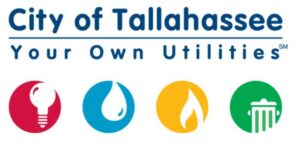
During an unforeseen and unpredictable economic catastrophe, how will utility companies keep America’s lights on and water running? Many people are facing uncertain financial futures due to the novel coronavirus pandemic and cannot pay their bills.
Tallahassee has a plan. As of April 4, there are “over 500” participants in the Utility Relief Program, according to a spokesperson for Tallahassee Mayor John Dailey.
Talgov.com reports that the Utility Relief Program will provide “City customers facing financial hardships with an option to defer payment of current monthly bill for water, sewer, electric and natural gas and other utility charges until this fall.”
James Barnes, the city’s chief customer officer, said that this six-month interest-free loan will help residents, and commercial and not-for-profit businesses.
Alone, there are upward of 292,500 residents based on a 2018 count.
The program is free to participate in. To be eligible you must be a Tallahassee utilities customer and be able to prove your financial hardships with documentation.
The loans will be applied to utility bills issued after March 12, and the grace period will end on May 12. Carryover payments will be applied to successive bills as a separate line item starting September 2020 through March 2021.
Some places are warning of utility scams in which a caller demands you pay them or else they will shut off your lights despite your economic situation. Only access information on your utilities from trusted websites such as Talgov.com.
The city is also encouraging people to use their energy wisely.
Other countries such as India and South Africa have been scrambling to find solutions to the stress on power grids caused by social distancing practices necessitating more electricity to conduct business online and for telecommunication.
Talgov.com recommends using some of the city’s energy efficiency programs. These programs include free energy audits, energy retrofit grants, natural gas and Energy Star appliance rebates and ceiling insulation grants.
Other cities and states have also devised similar plans to provide essential utilities to maintain stability and security.
These programs allow residents to stay “safer at home” with the lights on, water running and stoves hot.